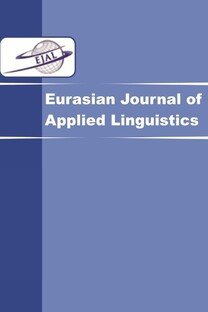Review of Social Interaction and L2 Classroom Discourse
Review of Social Interaction and L2 Classroom Discourse
___
- Balaman, U. (2015). Collaborative Construction of Online L2 Task Accomplishment through Epistemic Progression. Procedia-Social and Behavioral Sciences, 199, pp. 604-612.
- Eskildsen, S. W., & Wagner, J. (2013). Recurring and shared gestures in the L2 classroom: resources for teaching and learning. European Journal of Applied Linguistics, 1(1), 139-161.
- Kasper, G., & Wagner, J. (2011). A conversation-analytic approach to second language acquisition. In D. Atkinson (Ed.), Alternative approaches to second language acquisition (pp. 117-142). London: Routledge.
- Mann, S., & Walsh, S. (2013). RP or “RIP”: a critical perspective on reflective practice. Applied Linguistics Review, 4(2), 291-315.
- Seedhouse, P., & Walsh, S. (2010). Learning a second language through classroom interaction. In P. Seedhouse, S. Walsh, & C. Jenks (Eds.), Conceptualising learning in applied linguistics (pp. 127-146). Basingstoke: Palgrave Macmillan.
- Sert, O. (2011). A micro-analytic investigation of claims of insufficient knowledge in EAL classrooms. PhD Thesis. Newcastle University, UK.
- Sert, O. (2013a). “Epistemic status check” as an interactional phenomenon in instructed learning settings. Journal of Pragmatics, 45(1), pp. 13-28.
- Sert, O. (2013b). (Un)willingness to participate as participants' concern: reconsidering research on motivation in applied linguistics. Paper presented at the American Association for Applied Linguistics 2013 Conference, Dallas, TX.
- Üstünel, E., & Seedhouse, P. (2005). Why that, in that language, right now? Code-switching and pedagocical focus. International Journal of Applied Linguistics, 15(3), 302-325.
- Walsh, S. (2002). Construction or obstruction: teacher talk and leaner involvement in the EFL classroom. Language Teaching Research, 6(1), 3-23.
- Walsh, S. (2003). Developing interactional awareness in the second language classroom through teacher self-evaluation. Language Awareness, 12(2), 124-142.
- Walsh, S. (2006). Investigating classroom discourse. New York: Routledge.
- Walsh, S. (2011). Exploring classroom discourse: Language in action. London: Routledge.
- Walsh, S. (2012). Conceptualising classroom interactional competence. Novitas-ROYAL (Research on Youth and Language), 6(1), 1-14.
- Walsh, S., & Li, L. (2013). Conversations as space for learning. International Journal of Applied Linguistics, 23(2), 247-266.
- ISSN: 2149-1135
- Yayın Aralığı: 3
- Başlangıç: 2015
- Yayıncı: Ece Zehir Topkaya
Developing the communication skills of early childhood teacher candidates: The case of advice
The importance of focus on form in communicative language teaching
Cem ALPTEKİN, NACİYE GÜLCAN ERÇETİN KOCA
Understanding cultural conflict in EFL classrooms in the UAE
The role of theory in pedagogical grammar: A Cognitive + Communicative approach
Eye movements in reading span tasks to working memory functions and second language reading
